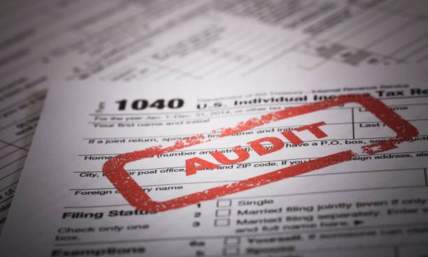When Are Business Taxes Due? All the Deadlines You Need to Know About.
If you are running a business, whether it be big or small, there are some things you need to know about, research, or employ a specific person to know about. Most people would consider these things the practical aspects of the business that we all know about, for example, an aerospace engineering firm would have to know about propulsion and physics.
However, there are some parts of a business that, no matter what industry you work in or where you work, are just something you need to know. One of these things is your taxes. Business taxes are a different kettle of fish from personal taxes, and woah betide you for not doing them right.
One of the big things that businesses struggle with is the tax dates, as different taxes can have different due dates. So, when are business taxes due? Are they mostly around the same dates? Or do they roam? In this article, we seek to explore when business tax dates are and what you need to know about the dates.
Also read: File Taxes for the First Time

Business Tax Deadline Dates and Which Taxes Are Due Then
The following list will look scary, there is not getting around that. This is mainly due to the length of the dates – since taxes are collected throughout the entire year, from January to December, - and the sheer amount of taxes collected throughout the year.
However, there is no need to fear, as most of these taxes will not apply to you. Taxes are often tailored to a person or businesses specific situation. All you have to do is go through the list, look at the taxes and see if any truly apply to your business before adding them to a list of taxes you need to do. So, without further ado, let’s begin:
January 15th:
This date is a deadline for payments of the estimated taxes of an individual or business entity's fourth quarter for the previous year. The people who need to complete the following forms are those who are completing self-employment and income taxes for owners of what is known as pass-through business entities.
A pass-through business entity is a company or other such legal entity, where the income flows through the company directly to investors or owners and, as such, the income of the entity is treated as the same as investor or owner. These include:
- Partnerships and multi-member LLCs.
- S corporations.
There are four forms that are due on this date. While each of these institutions must fill in the Form 1040-ES, they will only need to fill in the rest should they apply to their situation:
- Schedule C - Single member LLCs and Sole proprietors.
- Form 1065 - Partnerships and multi-member LLCs.
- Form 1120-S - S corporations.
You can either send the Form 1040-ES by mail and pay the estimate that way, use the Electronic Federal Tax Payment System (EFTPS), or use IRS direct pay to pay online.
January 31st:
The 31st of January is a big day in the tax year. This is the deadline day for sending W-2 forms to employees for the wages that were paid in the previous year, and it is also the deadline to send 1099’s to recipients of your business’ services. The forms you need to send off are as follows:
- Form W-2.
- Form 1099-MISC. (For miscellaneous payments, such as royalties and rent).
- Form 1099-INT. (For interest payments).
- Form 1099-DIV. (For dividend payments).
- Form 1099-NEC. (To send to any independent contractors that you paid $600 or more to, throughout the previous year).
- Form 941.
- Form 940.
The 941 and the 940 are slightly different from the rest, as they report on different things. The 941 is for reporting social security tax, income tax, and Medicare tax that has been withheld from your employees’ paychecks in the fourth quarter of the previous year. The 940 reports on the annual Federal Unemployment Tax Act tax liability for yourself.
If you have previously deposited the tax owed for the year in full, correctly, and on time, then the deadline for the 941 is February 10th, however we wouldn’t recommend risking it and instead file on January 31st, as you do not know whether this is the case until the IRS tells you so.
Also read: Are Bonuses Taxed Differently?

February 10th
Only one thing is due on this date:
- Form 941.
See bottom paragraph of January 31st for details on this section.
Also read: Change My Direct Deposit Information With The IRS
March 1st:
Before, you sent 1099’s to the recipients, but now this is the deadline for sending copies of your 1099s directly to the IRS. However, this is only for paper copies, as electronic copies are not sent until the 31st March. When you send off those 1099s, make sure to attach a 1096 as well. This summarizes the information in the return when they are mailed to the IRS, so they are easier to process:
- Form 1099-MISC. (For miscellaneous payments, such as royalties and rent).
- Form 1099-INT. (For interest payments).
- Form 1099-DIV. (For dividend payments).
- Form 1096.
March 15th:
This deadline is for LLCs and partnerships to report on and send a Form 1065 and for S corporations to report on and send a Form 1120-S for the previous calendar year. If the company is a pass-through business entity, then this is also the deadline for partners and shareholders to send a copy of a Schedule K-1, which shows their share of the entity’s losses and incomes.
If it is apparent that you cannot complete these returns in the given time, then you can fill and send a Form 7004 by this date, which would be a request for a 6-month extension.
Any LLC or C corporation that wishes to be taxed as an S corporation, then this is also the deadline to send in the Form 2553 to make this change. If you don’t send the Form 2553 by this date, or you send it after this date, then your company won’t be taxed as an S corporation until the following tax year.
- Form 1065.
- Form 1120-S.
- Form 7004.
- Form 2553.
March 31st:
Most electronic information returns that are filed need to be done so by this date, most importantly the Form 1099-MISC must be filed on this date:
- 1099-MISC.
Also read: Get A Tax ID Number
April 15th:
Most people know April 15th is tax day for the majority of Americans. This is the day when most individuals have to file a Form 1040 to report on their individual income and C corporations have to file a Form 1120.
While a six-month extension can also be asked for on this date by filing the Form 4868 for individuals and the Form 7004 for corporations, this doesn’t extend to paying the tax you owe at the time. If you require an extension, you need to make an estimate of how much tax you owe for the previous year and make a payment of that estimate by this date.
April 15th is also the date where first quarter estimated incomes and self-employment tax payments are due, which are for sole proprietors and pass-through business owners. Checks can be sent with a Form 1040-ES to the IRS, or a payment can be made online for these two instances.
C corporations of that tax year must also make a first quarter estimated income payment using a Form 1120-W to estimate the tax and payment through either the mail or online on this date.
- Form 1040.
- Form 1120.
- Form 4868.
- Form 7004.
- Form 1040-ES.
- Form 1120-W.
Also read: Are Moving Expenses Tax Deductible?

April 30th:
Much like the Form 941 before, this is used to report social security tax, income tax, and Medicare tax that has been withheld from your employees’ paychecks, but for the first quarter of this tax year this time. Like before, if you have done everything correctly, then you have until May 10th to send this Form.
- Form 941.
May 10th:
- Form 941.
See bottom paragraphs of January 31st or top paragraph of April 30th for this section.
June 15th:
This is the date where second quarter estimated incomes and self-employment tax payment are due, which are for sole proprietors and pass-through business owners. Checks can be sent with a Form 1040-ES to the IRS, or a payment can be made online for these two instances.
C corporations of that tax year must also make a second quarter estimated income payment using a Form 1120-W to estimate the tax and payment through either the mail or online on this date.
- Form 1040-ES.
- Form 1120-W.
July 31st:
The Form 941 deadline for the second quarter of this tax year. This is used to report social security tax, income tax, and Medicare tax that has been withheld from your employees’ paychecks. Like before, if you have done everything correctly, then you have until August 10th to send this Form.
If your company or you as a business owner implement an employee benefit plan, like a stock bonus plan or a pension, then July 31st is also the deadline to file a Form 5500 or a Form 5500-EZ, depending on the previous calendar year.
If you owe more than $500 in FUTA tax deposits for the previous June, then the deadline to pay is also July 31st.
- Form 941.
- Form 5500.
August 10th:
- Form 941.
See bottom paragraphs of January 31st and top paragraph of July 31st for details.
September 15th:
This is the date where third quarter estimated incomes and self-employment tax payment are due, which are for sole proprietors and pass-through business owners. Checks can be sent with a Form 1040-ES to the IRS, or a payment can be made online for these two instances.
C corporations of that tax year must also make a third quarter estimated income payment using a Form 1120-W to estimate the tax and payment through either the mail or online on this date.
Any pass-through business entity that requested and was granted a six-month extension on March 15th have now reached the end of their extension on this day and must file a Form 1065 or a Form 1120-S and must supply a Schedule K-1 to shareholders and partners in the business.
- Form 1065.
- Form 1120-S.
- Form 1040-ES.
- Form 1120-W.
October 15th:
Any individual or C corporation that requested and was granted a six-month extension on April 15th have now reached the end of their extension on this day and must file a Form 1040 or a Form 1120.
- Form 1040.
- Form 1120.
November 1st:
The Form 941 deadline for the third quarter of this tax year. This is used to report social security tax, income tax, and Medicare tax that has been withheld from your employees’ paychecks. Like before, if you have done everything correctly, then you have until November 10th to send this Form.
- Form 941.
November 10th:
- Form 941.
See bottom paragraphs of January 31st and top paragraph of November 1st for details.
December 15th:
C corporations of that tax year must also make a fourth quarter estimated income payment using a Form 1120-W to estimate the tax and payment through either the mail or online on this date.
- Form 1120-W
Other important dates:
For those depositing social security, withheld income tax, and medicare payment on a monthly basis, then you should know that the deadline for these is the 15th of every month throughout the year.

Conclusion
Taxes can seem unbearably daunting, especially to those not trained in accounting or knowledgeable about taxes in general. However, with this list, we hope that business taxes are just a little bit more manageable for you and your company.
Our pay stub generator allows you to create pay stubs in a simple and easy-to-use manner. Which can help massively in terms of filing taxes.















